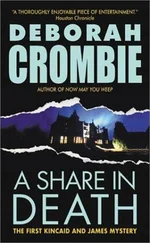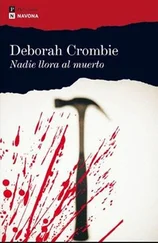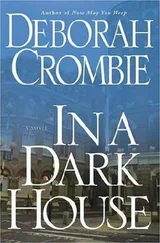"Did Gemma ring you?" he asked, following her into the flat.
"She's fussing over me. And sending you to fuss by proxy," Erika answered, but she didn't sound displeased. "Anyone would think I was an old biddy, although I've never been sure just what a biddy is. It sounds rather unpleasant.
"It's cooler inside today than out," she added as they reached the kitchen.
She had put two tall glasses on a tray, along with a clear glass jug in which floated a few ice cubes and slices of lemon. When she poured Kit a glass he drank it down thirstily, finding he liked the tartness. He slid into a seat at the small table, and at Erika's nod, poured himself another glass.
Erika sat across from him, but barely touched her own drink. He saw now that in spite of her chatter, she looked tired, and bright spots of color burned in her cheeks.
"I'm sorry about the girl who was killed," he said, finding it suddenly easy. "And I'm sorry for what I said about your father yesterday. It wasn't fair of me."
"No." She shrugged aside his apology. "It was what happened that wasn't fair. Nothing was fair then, but you were right, you know. We should never have let my father talk us into letting him stay behind. But he was a stubborn man, and he convinced himself that if he carried on as usual and pretended we had gone to visit relatives in Tilsit, then there was less likely to be an alert for us.
"Not that the Nazis were averse to letting Jews out of the country at that point, mind you, but David was a troublemaker, and they might have thought he would stir up antagonism against the regime if he reached a country where he could speak freely."
"But once you got out-couldn't your dad-"
Shaking her head, Erika said, "It was 1939. By the time we were settled in London, Germany invaded Poland. After that, we lost all communication, although we tried, everyone tried. But even the news broadcasts were censored by the Nazis, and we could only guess, and listen to the tales told by those who came after us. It was only after the war, when records began to become available, that I learned my father lost his business not long after we left, and then our home. He was taken to a work camp-that was what they called them, then."
"Sachsenhausen?"
"Yes. As far as I was able to discover, he died in Camp Z."
Kit couldn't imagine the not knowing, the imagining that could not have comprehended the horrors her father must have endured. At least he knew what had happened to his mum, what she had suffered, and that her death had been quick.
And what had it been like for Erika, a stranger in London, marked out by her accent as an alien, and worse, as a German? But at least she hadn't been alone.
"Your husband. When you came to London, did he do what the Nazis thought he would do? Did he tell people what had happened?"
Erika looked out into the garden. The fig tree outside the kitchen window made moving green shapes of the sunlight, like liquid puzzle pieces, and Kit caught the scent of hyacinths through the open window. He was sweating, and drops of condensation trickled down the outside of the lemonade jug. She was quiet for so long that, once again, he had begun to wish he hadn't asked, when she turned back to him. She studied him for a moment, her dark eyes intent, until he felt he was being measured, or tested.
Then she said, "Let's go for a walk, shall we? In the sun. And I'll tell you about my husband."
***
The CID room stank. There were too many bodies in a small space, wearing clothes rancid with sweat from the heat. Too many fag ends put out in desktop ashtrays, too many grease-stained chip wrappers, all mixed with the pervasive odor of burnt coffee.
Gavin put down the phone for what seemed the hundredth time and rubbed at his ear, damp from contact with the heavy earpiece. His head ached and his stomach burned from too much of the same coffee whose smell permeated the air. He wondered why he had ever wished for it to be spring, and why he refused to give up on a case that was going nowhere.
Last night he had stayed late at the station, compiling every report on David Rosenthal-the detailed postmortem, the house-to-house reports from the area near the murder, his own carefully typed interviews with Erika Rosenthal and David Rosenthal's colleagues-and he had come up with nothing.
When he had gone home at last, Linda had been awake, her hair in papers, reading a magazine in bed. She had studied him, her nose wrinkled in distaste, and he'd wondered if he still smelled of death from the mortuary, or if he somehow carried the mark of his desire for another woman. Guilt had made him brusque, and he had been careful not to touch her as he climbed into bed. He suddenly found the thought of intimacy with his own wife unimaginable, and he drifted into sleep facing away from her, clutching his pillow like a drowning man clinging to a spar.
He had awakened early and had spent the morning making phone calls to contacts at newspapers and to the few underlings in government offices he could count as reliable sources, but no one would admit to knowing anything concrete.
Yes, there were rumors-one assistant to an undersecretary at the Home Office had even said he'd heard whispers that the Haganah, the Jewish terrorist organization, had offshoots in London. But these figures seemed mythical, shadowy, as hard to pin down as wolves flitting in and out of the edge of a forest.
Nor could he see any reason why, if David Rosenthal had supported such people, they would have had reason to kill him. Unless…Unless David had fallen out with their ideals, and had threatened to expose them.
Frustrated with the endless loop of questions, Gavin pushed back from his desk. David Rosenthal had kept more than one part of his life hidden from his wife and his colleagues. It was past time he paid a visit to the British Museum.
***
Having appropriated Gemma's desk, Melody leaned back in the chair and prepared to enjoy her disclosures. Although Kristin Cahill had apparently thrown away the card that came with the flowers, Mrs. March had remembered the name on the florist's delivery van.
It was indeed an upmarket floral design shop in Knightsbridge, and Melody had put on her best posh voice when she made the phone call, the accent she tried her best to rub out of her daily existence. When she explained her mission, the salesclerk, sounding decidedly frosty, informed her that they were not in the habit of giving out their customers' private information.
Melody explained, very politely, that they could of course get a warrant, but that would entail disrupting the business considerably, and that the presence of the police would certainly be of interest to the shop's clientele. And besides, she added, who was to say that the recipient of the bouquet in question hadn't told a friend or coworker who had sent them?
Having been assured of discretion, the florist hesitated. "How do I know you are who you say you are?" she asked. "You could be some journalist prying into our clients' private lives."
The thought made Melody smile, but she schooled her expression back into earnest sincerity and asked the woman to ring her back at the station number. That done, the florist reluctantly gave her the name.
Melody stared at the name she had scribbled, her eyes wide, then began checking references on the Internet. When she was satisfied and had printed a photo, she rang Gemma.
"His name," she said, "is Dominic Scott. His grandfather was Joss Miller, a financier who made his fortune rebuilding London after the Blitz, often using less than respectable methods.
"Kristin Cahill was definitely dabbling outside of her sphere-or stratosphere might be more accurate. Dominic Scott's mother, Ellen, who goes by the awkward hyphenate of Miller-Scott, has devoted herself to turning her father into a saint through philanthropy and arts patronage, especially now that she no longer has to reckon with the old man himself. He died two years ago from liver cancer."
Читать дальше












